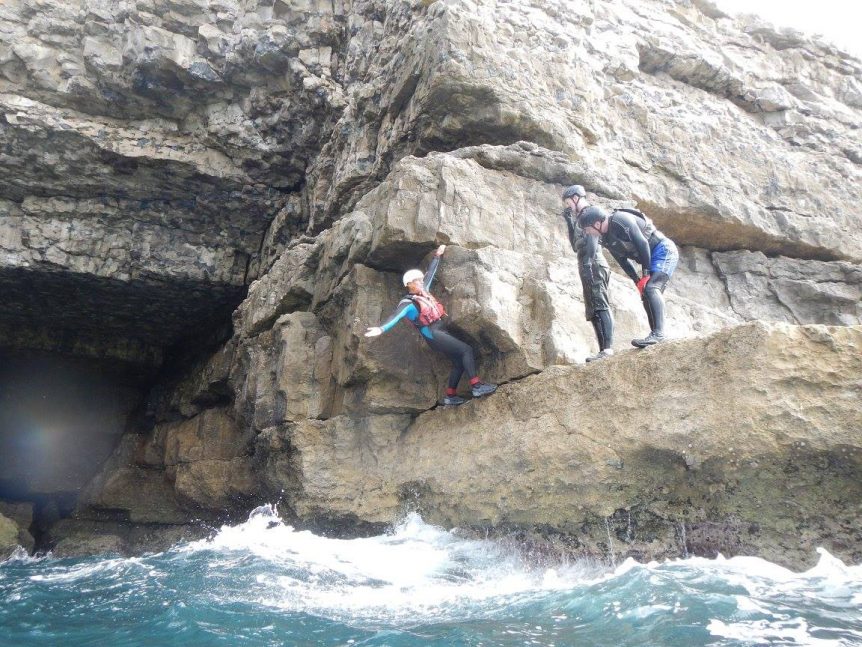When you undertake the teaching of a Dorset climbing course and coasteering sessions to the uninitiated you must strive to be the best there is. That way you should be at least a good instructor which is essential. Average is not good enough. Coasteering and climbing has its hazards and, as with any potentially hazardous pursuit, the way to keep the sport as safe as it can be, is not by imposing rules and regulations, but by ensuring that everyone who takes part is taught the skills, values and ethics needed to manage the risks effectively. That is the job of the instructor.
I’ve been running Dorset climbing courses and coasteering sessions for over ten years now, mostly teaching others as a fully trained, qualified and experienced instructor. That has taught me the importance of those values and ethics I mentioned. So what are they?
I’ve distilled the many thoughts on the subject into the following
- Never forget your feelings on your first venture into the enthralling world of coasteering, excited, a little nervous and apprehensive and probably a bit bewildered, all at the same time? Well, that’s how your clients are feeling, even if they try to cover it with bravado! Telling them how you felt will help develop that all important empathy
- You are not there to impress the beginners with your You are there to pass on your hard won skills, and equally important, your local knowledge. So leave your ego at home. It’s not about you. It’s about your clients. Remember that learning can be a two-way traffic. You might learn something from them
- It is part of your job to inspire the group to want to learn and achieve more. You need to get the balance right
- You will need an extensive knowledge of the sea and its ways, local conditions, swell, tides and currents, eddies and the coastal environment. This is vital knowledge to pass on
- Make sure that you are always working well within your own comfort zone
- There will be times when you know you should say, “No,” to your clients. Maybe because the group is too large to manage safely or maybe the conditions are unsuitable. Don’t give way to pressure and risk becoming a statistic!
- Take the trouble to fully understand your clients’ needs and their existing skills and abilities
- Treat other people, non-participants, local folk and the general public with respect and courtesy. Your clients will pick up the habit from you.
- You will need the flexibility to be able to run different sessions in the same location
- Your clients will pick up their habits from you! Good habits will keep them safe. Don’t pass on bad habits which will have the opposite effect
It’s a lot to think about but when you analyse all those considerations you realise that common sense plays a large part in all of them. Apply common sense throughout along with your knowledge and experience and you won’t go far wrong!
Happy coasteering and climbing in Dorset, and good luck with climbing instructor training!
For more information on instructor training

